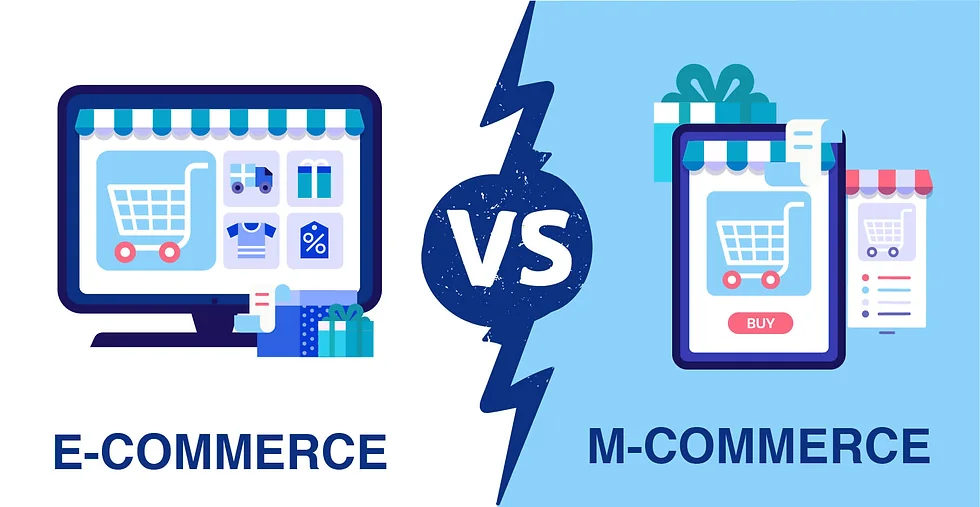Before mobile phones people had to go to stores to buy things. But with the rise of the internet e-commerce started. E-commerce is when people buy and sell things online using computers. Over time mobile phones became smarter and people started using them to do the same things they did on computers. This shift is called m-commerce or mobile commerce and it has made shopping even easier. Now people can buy and sell things just by using their phones wherever they are.
M-commerce is changing how we do business. With just a few taps on a smartphone people can buy anything from clothes to groceries or even book tickets for a vacation. This makes shopping faster and more convenient. For sellers it also opens up new opportunities because they can reach people anywhere in the world. Whether you’re at home at school or on vacation, mobile trade and m-commerce make it easy to buy and sell things in a way that’s never been possible before.
The Role of Mobile Apps in the Gig Economy
In the gig economy mobile apps are the tools people use to find work. Apps like Uber Fiverr and TaskRabbit allow people to offer services or do tasks for others in exchange for money. With just a phone someone can drive a car to pick up passengers or deliver packages. People can also use their phones to offer skills like designing logos or tutoring children. These apps are an important part of the gig economy because they make it easy for people to get paid for short jobs without needing a full-time job.
These apps also give workers the freedom to choose their own hours. For example a person can choose to work in the morning or the evening depending on their schedule. They don’t need to follow a boss’s orders all the time. This flexibility is a big reason why so many people like the gig economy. Mobile apps help people find work quickly allowing them to make money on their terms. As more apps continue to launch the gig economy will keep growing giving people even more ways to work and earn from their phones.
Benefits of Mobile Trade for Entrepreneurs and Consumers
Mobile trade is changing the way both business owners and customers work. For entrepreneurs using mobile phones makes it easier to reach customers around the world. They can sell their products online, manage their business and connect with buyers anytime anywhere. This helps small businesses grow quickly because they can compete with larger companies by using mobile trade to sell goods at lower costs. Whether it’s a small shop selling handmade crafts or a larger company selling clothes, mobile trade opens up new opportunities.
Consumers also enjoy many benefits from mobile trade. It gives them access to a wide variety of products without leaving home. With mobile trade they can compare prices, read reviews and make informed decisions quickly. Shopping has never been easier because customers can buy things with just a few taps on their phones. Additionally many apps offer special deals or discounts making it more affordable. Mobile trade allows people to shop conveniently, saving time and money while making it easier to discover new products from all over the world.
Challenges Faced by Workers in the Gig Economy
Even though the gig economy offers flexibility and independence it comes with some challenges. One of the biggest problems is that gig workers often don’t have a steady income. Unlike regular jobs where workers get paid every week or month gig workers are paid based on the jobs they do. This can make it hard to predict how much money someone will earn in a month. If they don’t get many gigs they might not make enough to cover their bills.
Another challenge is that gig workers don’t always have the same benefits as full-time employees. For example they might not get health insurance paid vacations or retirement plans. This can make it harder for gig workers to plan for the future. They also may not have the same job security since the work they do is temporary or short-term. While the gig economy gives workers freedom, these challenges show that there are still issues that need to be addressed to make this type of work more stable and fair.
How Mobile Trade Is Empowering the Global Workforce
Mobile trade is helping people around the world work and earn money in ways they never could before. With just a smartphone and an internet connection anyone can buy, sell or offer services. For example, someone in a small village can sell handmade jewelry to people in different countries. Mobile trade breaks down barriers and gives workers the chance to reach global markets even if they don’t have a physical store or office. This is especially helpful for people in developing countries where jobs might be limited.
By using mobile trade workers can connect with customers or clients far away. This global reach allows them to earn more money and grow their businesses faster. In the gig economy people from all over the world are finding work through mobile apps. Whether it’s driving for a ride-sharing service or designing graphics for a company, the gig economy allows workers to become part of the global workforce offering their services to anyone in need no matter where they are.
Security and Privacy Concerns in Mobile Trade and Gig Work
As mobile trade and gig work grow, security and privacy have become important concerns. When using mobile apps for shopping or working people share a lot of personal information like their addresses, bank details and contact numbers. This makes them vulnerable to scams or theft if the apps don’t protect their data properly. There have been cases where hackers steal personal information from users which is why it’s important for people to be careful and only use trusted apps.
In the gig economy workers also face security risks. For example when someone meets a customer for a job they may not know if the person is trustworthy. Apps and companies that run gig services need to make sure their users are safe by providing good customer service, secure payment systems and safety features. Workers should also take steps to protect themselves like meeting clients in public places or using secure payment options. As mobile trade and the gig economy continue to grow addressing security and privacy issues will be essential to protect both workers and consumers.
The Future of Mobile Trade and the Gig Economy: Trends and Predictions
Looking into the future mobile trade and the gig economy are expected to keep growing. New technology like faster internet connections and better smartphones will make it even easier for people to trade and work online. We may see more people using their phones to buy things, offer services or even start their own businesses. As more people get access to mobile devices and the internet, especially in developing countries the gig economy will expand to include even more workers and customers.
The future of mobile trade will also bring new ways to shop. We might see virtual reality (VR) or augmented reality (AR) used to help people try products before they buy them all through their phones. In the gig economy robots or artificial intelligence (AI) could help with tasks like customer service or delivery. As technology improves mobile trade and the gig economy will continue to change the way we work and shop. With these exciting changes ahead the possibilities for the future are endless.
Conclusion
Mobile trade and the gig economy are two exciting trends that are changing how we work, buy and sell. These innovations are made possible by the power of smartphones and apps which allow people to shop and earn money no matter where they are. While there are challenges like income instability and security concerns the benefits of mobile trade and gig work are clear. Looking forward, the future seems bright for both mobile trade and the gig economy offering new opportunities for people around the world. As technology continues to improve we can expect even more changes and growth in these areas making life easier and more flexible for everyone involved.





Leave a Reply